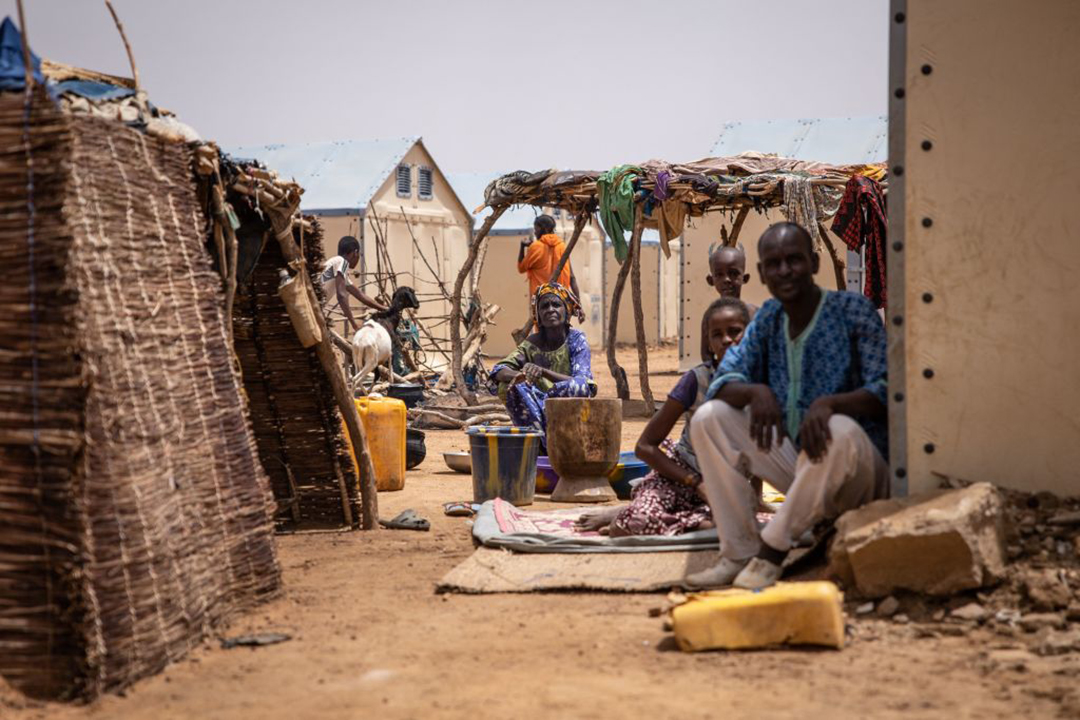Mali Caught in Clutches of Multiple Crises
ADF STAFF
Insecurity, hunger, drought, inflation and poverty haunt Malian civilians daily as the country deals with a confluence of crises.
Mali is increasingly isolated from the international community after two military coups led to regional sanctions. The ruling junta has announced plans to restore a civilian-led government but has not offered details on when and how this will happen. Mali’s recent collaboration with Russia’s infamous Wagner Group mercenaries led to accusations of human rights abuses and the departure of international security forces and support.
Humanitarian groups also are sounding alarms about rising hunger as rising violence against civilians comes at the hands of extremist groups and by government forces with the support of Wagner fighters.
It all adds up to misery for the people of Mali.
Human rights crisis
It was about 10 a.m. on market day in the central Malian town of Moura on March 27 when several helicopters arrived with government forces and Russian fighters, witnesses said.
They landed and exchanged gunfire with members of an armed Islamist organization before shooting at people who had panicked and fled.
At least 300 were killed over four days of terror as Islamist militants, villagers and market visitors were rounded up and shot, according to a report by Human Rights Watch (HRW).
“The Malian government is responsible for this atrocity, the worst in Mali in a decade, whether carried about by Malian forces or associated foreign soldiers,” HRW Sahel Director Corinne Dufka said in a statement.
Mali’s military called it a large-scale operation on the “terrorist fief” of Moura and said it had killed 200 militants.
The junta previously denied deploying mercenaries, saying Russian “advisors” were in Mali to train counter-insurgency forces.
Mali’s military prosecutor has announced an investigation into the events in Moura after demands for accountability from a Malian governmental agency, the National Human Rights Commission (CNDH).
Since France announced its six-month withdrawal from Mali in February, there has been a significant rise in civilian deaths, both at the hands of armed Islamist groups and Malian forces.
The United Nations also is investigating reports from its peacekeeping mission in Mali (MINUSMA) of similar instances of Malian forces “accompanied by alleged Russian elements of the Wagner Group” raiding villages and executing civilians.
CNDH President Aguibou Bouare said he cannot yet prove that the Russian fighters are members of the Wagner Group, but he condemns the use of mercenaries in Mali.
“We know that these are organizations that do not respect human rights,” he told Voice of America. “This is why we really fear interventions by these types of private military enterprises.”
More than 400,000 Malians have been internally displaced by extremist violence, according to U.N. statistics.
Humanitarian crisis
The number of people in Mali dealing with hunger tripled in 2021 — a record 1.2 million in food crisis, according to a coalition of 22 aid organizations working in the country.
“The situation will go from bad to worse for millions of vulnerable people if we don’t act now, with projections indicating a further 58% increase in the number of food insecure people next year,” Adeline Benita, director of the Humanitarian Working Group of the International NGOs Forum in Mali, said in a statement.
Last year, drought and an abbreviated rainy season reduced harvests, causing rising costs now at the same time as global food prices are on the rise due to Russia’s invasion of Ukraine.
Ely Keita, Mali director for humanitarian relief agency CARE, said the crisis in Mali is multidimensional.
“We have the physical threat linked to the ongoing violence and insecurity, but this is also compounded by the worsening climate crisis which is leading to higher and higher temperatures and poor rainfalls,” he said on his organization’s website. “Many people have not been able to access their farms due to the ongoing insecurity. People are coming to their farms and seeing whole fields in flames, which is hugely traumatizing.
“We also know that 80% of those working in informal work such as farming are women and girls, which adds an increased risk and burden for them as they cannot access their livelihoods, but still bear the responsibility for feeding their families.”


Comments are closed.